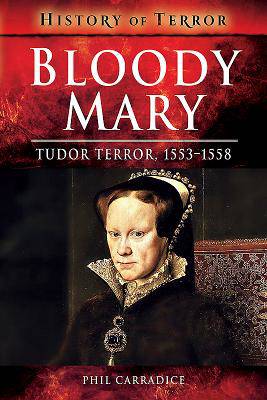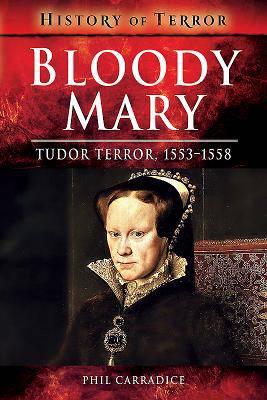
- Afhalen na 1 uur in een winkel met voorraad
- Gratis thuislevering in België vanaf € 30
- Ruim aanbod met 7 miljoen producten
- Afhalen na 1 uur in een winkel met voorraad
- Gratis thuislevering in België vanaf € 30
- Ruim aanbod met 7 miljoen producten
Zoeken
€ 18,45
+ 36 punten
Omschrijving
When Mary Tudor, eldest daughter of Henry VIII, succeeded to the throne of England in 1553 it was with wild rejoicing and a degree of popularity rarely seen on the accession of a British monarch. Yet at her death five years later she was almost universally reviled and hated by her people so much so that she was posthumously awarded the sobriquet Bloody Mary. Mary's revenge on the church and on a religion she hated was swift and total. Noblemen like the Duke of Northumberland, would-be queens like Lady Jane Grey, churchmen like Thomas Cranmer and bishops Latimer and Ridley, Mary's fires or the executioner's axe ended the lives of all of them. During her brief reign she restored the Catholic faith to England and had over 280 Protestant martyrs burned at the stake. For a reign that looked so promising Mary's brief period in power brought the greatest officially sanctioned religious bloodletting the country had ever seen. And at the end, the stench of the execution fires and the grey smoke that settled like a pall across the country seemed to epitomize the reactionary forces that had assumed control.
Specificaties
Betrokkenen
- Auteur(s):
- Uitgeverij:
Inhoud
- Aantal bladzijden:
- 128
- Taal:
- Engels
- Reeks:
Eigenschappen
- Productcode (EAN):
- 9781526728654
- Verschijningsdatum:
- 29/08/2018
- Uitvoering:
- Paperback
- Formaat:
- Trade paperback (VS)
- Afmetingen:
- 155 mm x 231 mm
- Gewicht:
- 299 g

Alleen bij Standaard Boekhandel
+ 36 punten op je klantenkaart van Standaard Boekhandel
Beoordelingen
We publiceren alleen reviews die voldoen aan de voorwaarden voor reviews. Bekijk onze voorwaarden voor reviews.











